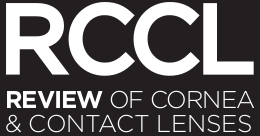A Mediterranean diet may actually have a negative effect on dry eye symptoms, while increased intake of vitamin D may have a small but positive effect, according to a study published in the May 2014 Cornea.
Two hundred forty-seven male patients between 55 and 95 years old (mean age 69) at the Miami Veteran’s Affairs eye clinic with normal eyelid, corneal and conjunctival anatomy were recruited to undergo dry eye testing following dietary changes.
The subjects adhered to the Mediterranean diet, which includes a relatively high intake of fruits, vegetables, monounsaturated fat, fish, whole grains, legumes and nuts, as well as moderate alcohol consumption. In addition, the overall intake of red meat, saturated fat and refined grains is significantly decreased.
Previous studies have demonstrated that the Mediterranean diet may be a protective factor against all-cause mortality, coronary heart disease and diabetes. Because the diet is linked to a decrease in inflammatory markers, there is plausibility that it may have an effect on dry eye disease.
Additionally, the researchers examined the effects of increased vitamin D intake on dry eye disease, as 25-hydroxy vitamin D was inversely correlated with the inflammatory marker soluble interleukin-2 receptor. Each patient was asked to fill out a 2005 Block Food Frequency Questionnaire and the 5-item Dry Eye Questionnaire.
Additionally, an ocular surface examination consisting of tear osmolarity evaluation, tear break-up time, corneal staining, Schirmer’s test was conducted on each patient.
Patients who adhered to the Mediterranean diet were actually found to have an increased risk of dry eye (p=0.007). Patients who reported a higher Mediterranean diet score on the food frequency questionnaire (i.e., those who adhered to the plan) demonstrated abnormal meibum quality, abnormal staining and higher Schirmer’s test scores.
Vitamin D levels exhibited no significant association with dry eye parameters; however, increased levels of vitamin D were significantly associated with a decreased presence of dry eye symptoms (p<0.01). While the Mediterranean diet has been shown to improve systemic health, there was no beneficial effect on dry eye symptoms. However, higher levels of vitamin D exhibited a small but favorable effect on dry eye disease.
1. Galor A, Gardener H, Pouyeh B, et al. Effect of a Mediterranean dietary pattern and vitamin D levels on dry eye syndrome. 2014 May;33(5):437-41.


